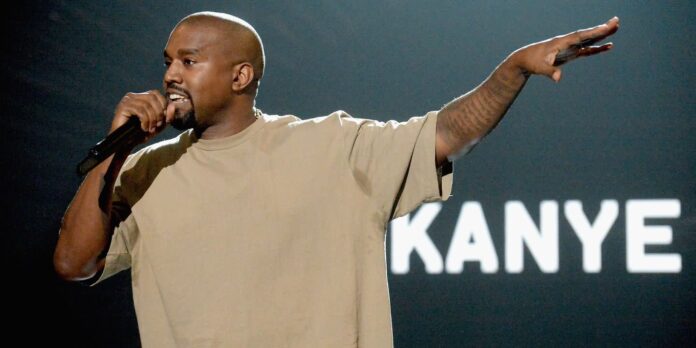
Growing up in the 2010s, I was exposed to pop culture and loved discovering new music.
I was very young when Kanye West released his best albums, but I discovered him when he collaborated with my favorite rapper at the time, Big Sean, in the song Blessings.
Also, growing up watching Keeping Up With the Kardashians, the storyline between him and Kim Kardashian was something I looked forward to every day.
I was not a die-hard fan, but the pandemic changed that.
Picture this: I was living in Ecuador at the time and did not leave my house for five months straight. What did I do most? Doomscrolling on my phone.
As I downloaded TikTok, Kanye’s songs were all over my ‘For You’ page. Songs like Flashing Lights and Ghost Town resurfaced quickly and were loved by those who claimed to dislike Kanye.
While TikTok users used the platform to discredit his work, they were creating TikTok dances and posts with his music.
I quickly became fascinated with him and how he became one of the industry’s biggest stars.
After all his controversies, it might sound crazy to say that now, but Kanye’s influence on the music industry is undeniable.
That does not mean that his hateful rhetoric should be dismissed.
When his controversy surrounding Taylor Swift happened, I was disturbed by the Famous video. However, the wave of massive hate surrounding Swift made it seem as if defending her would be “crazy.”
I did not give it much thought. After all, I was just a teenager.
‘Separating the art from the artist’ is impossible when Kanye openly advocates for everything that is morally wrong and all of his songs remind you about his fascist allegations.
Things got worse when he publicly supported Donald Trump during the 2016 elections.
Still, I chose to overlook it, assuming it was just a marketing strategy. I admit that I held onto this mindset for a while.
Then, people were defending him, claiming that he was dealing with complex mental issues. His fan base even claimed it was hypocritical to advocate for mental health while criticizing a man struggling with these problems.
I do believe this to be true and at the time, it justified some of his behaviours to me.
Still, I did recognize that he was being weird, to say the least. Especially when he went from releasing Jesus is King to making antisemitic comments.
That was the moment I chose to ‘separate the art from the artist.’
His comments against the Black community and Jewish community were undefendable to me.
When he released Donda, I was listening to him more often than before. It was a groundbreaking album.
But all of my admiration for his work went down the drain when he proceeded to spiral once more and make the most atrocious comments against the Jewish community and even George Floyd in 2020.
This time around, it was a no-brainer for me — Kanye might be a great artist, but he is an awful person. The internet did not know how to justify his comments anymore.
I saw lots of comments saying, “But he made Graduation,” which still stand to this day. But in my opinion, Graduation does not justify blatant xenophobia.
There was one problem, though: every single playlist I had included a song from Kanye. For approximately three years, I just skipped the song if it was his.
After watching the last Grammy ceremony, I was officially done with him. His comments appealing to far-right ideology once again just pissed me off.
I looked for a solution and found that in Spotify, you can go to the artist’s profile and opt for “Do not play this artist,” which immediately removed his work from all my playlists.
He is not getting a cent from me. Kanye’s legacy has been tainted with shame.
So no, it is no longer possible to ‘separate the art from the artist’ when talking about Kanye West.
